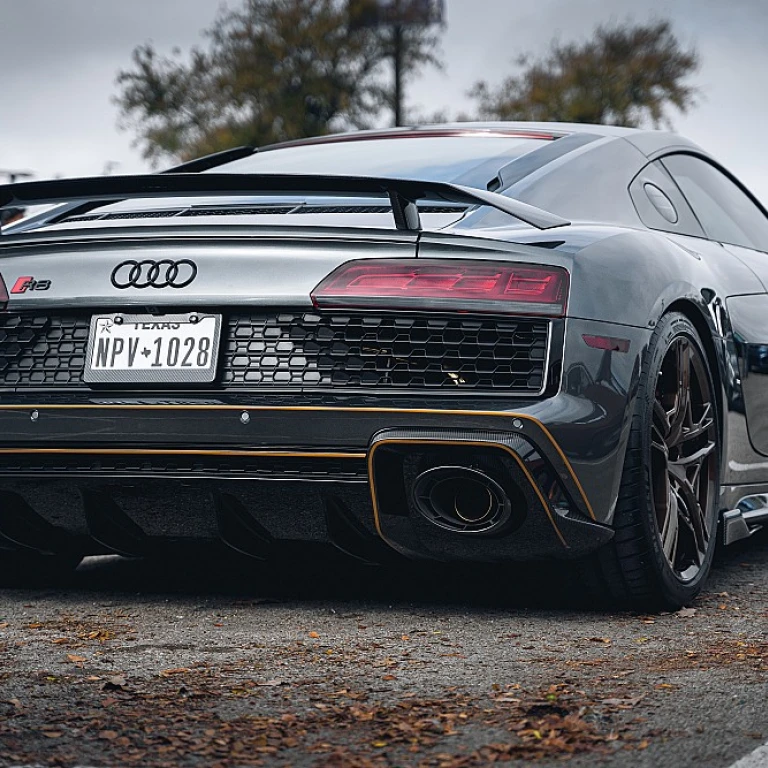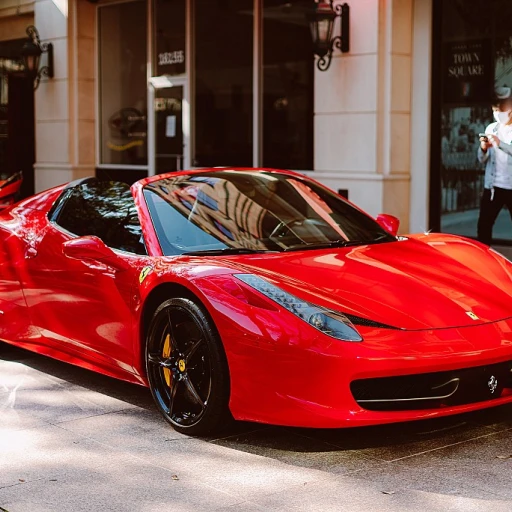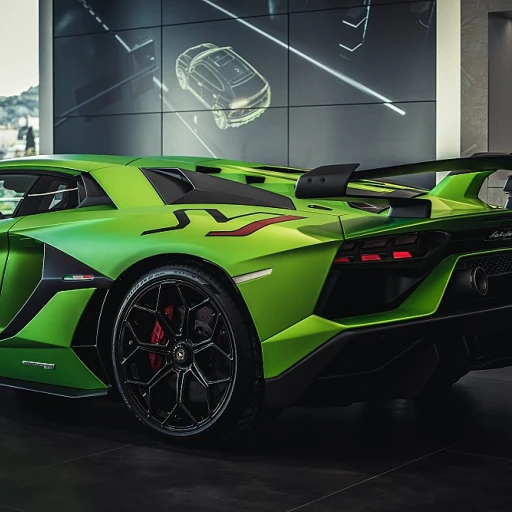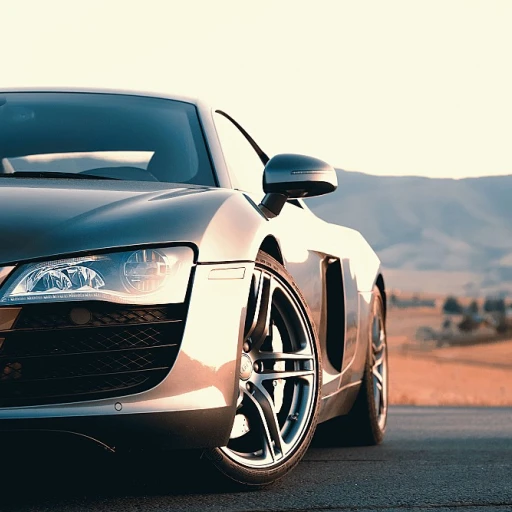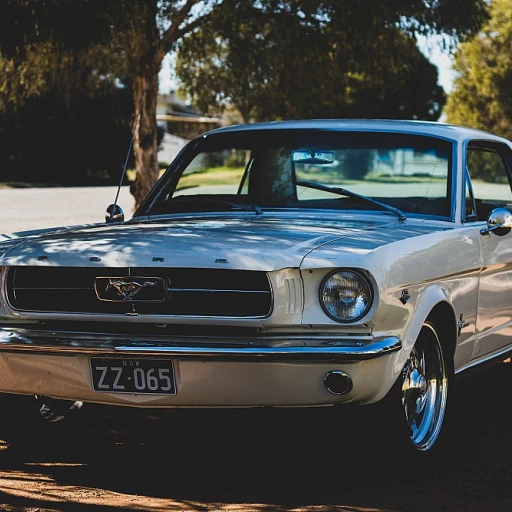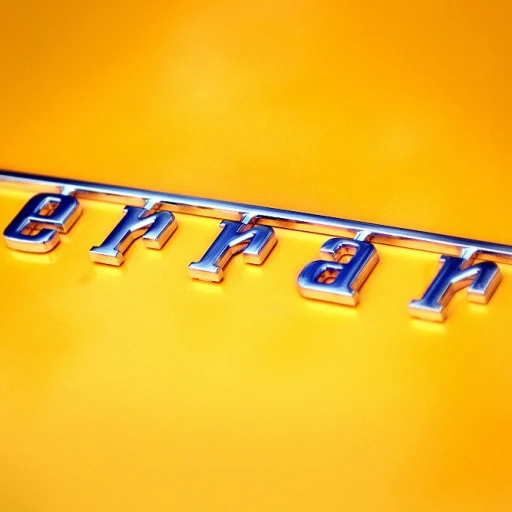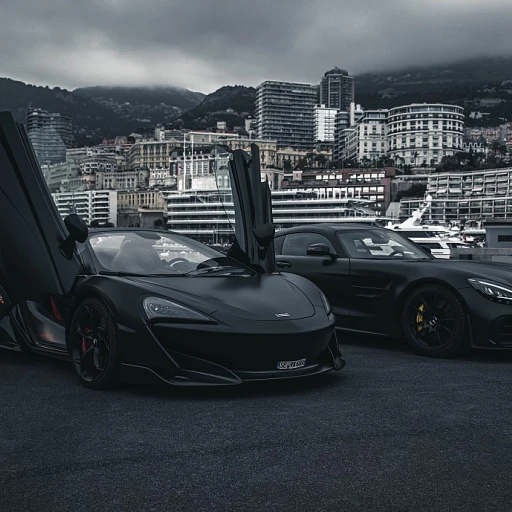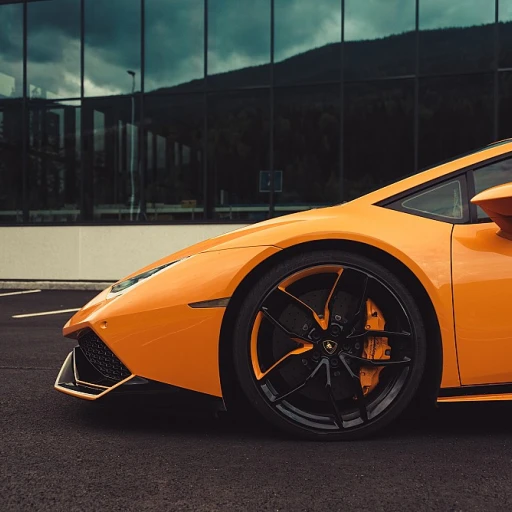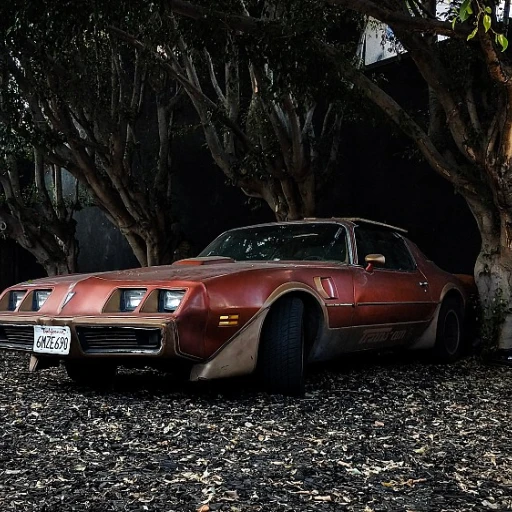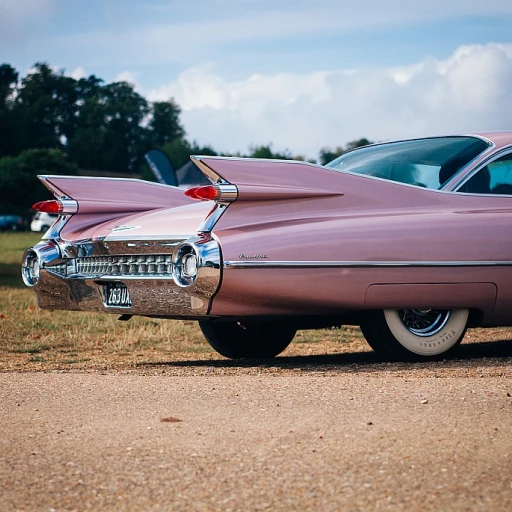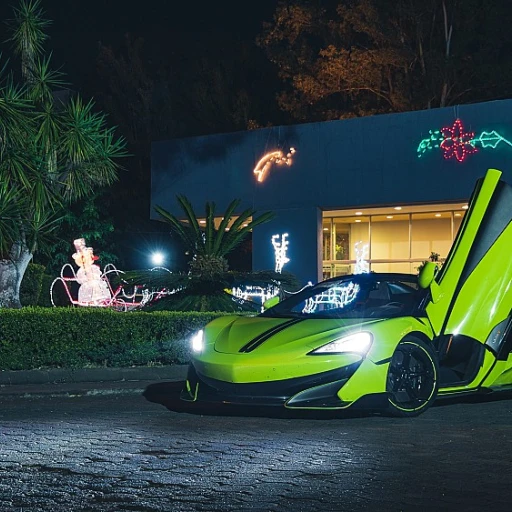
The Rise of Eco-Luxury in the Automotive World
Luxury Meets Sustainability: A New Era
The world of luxury cars is undergoing a remarkable transformation, driven by an increasing demand for eco-friendly and sustainable practices. This shift is not just a trend but a fundamental change in how luxury is perceived and experienced. As consumers become more eco-conscious, luxury brands are responding by integrating sustainable practices into their design and production processes.
Eco-luxury is no longer a niche market. It has become a significant force in the automotive industry, with luxury car manufacturers embracing environmentally friendly technologies and materials. This movement is reshaping the landscape of luxury travel and experiences, offering consumers the opportunity to enjoy high-end vehicles without compromising on their environmental responsibility.
Incorporating sustainable materials into the design of luxury cars is just one aspect of this transformation. The use of innovative materials not only enhances the aesthetic appeal of these vehicles but also reduces their carbon footprint. This approach aligns with the broader trend of sustainable tourism and eco-friendly practices that are gaining traction across various sectors, including luxury homes and hotels.
As the demand for eco-conscious luxury continues to grow, car manufacturers are exploring new ways to balance luxury and sustainability. This involves adopting energy-efficient technologies and implementing sustainable practices throughout the production process. The result is a new breed of luxury cars that offer a unique blend of high performance and environmental responsibility.
For those interested in exploring the potential of electromobility in the luxury car market, you can learn more about what electromobility can offer to luxury car enthusiasts here.
Innovative Materials: Redefining Luxury with Sustainability
Sustainable Elements Crafting the Future of Elegance
In the luxurious world of automobiles, the use of innovative materials is at the forefront of redefining how elegance and eco-consciousness converge. As the auto industry navigates a more sustainable path, luxury car makers are incorporating materials that not only elevate their vehicles' lavish appeal but also promote environmental stewardship. Luxury brands are increasingly adopting materials such as recycled aluminum, which offers the dual advantage of reducing the ecological footprint and maintaining the durability and aesthetics associated with high-end cars. In addition, the application of vegan leather alternatives, often derived from bio-based sources, ensures that interiors match the opulence without compromising on sustainability. Another noteworthy trend is the integration of natural fibers that replace traditional plastics. Such fibers not only enhance the tactile experience of a vehicle's interior but also significantly reduce the use of petroleum-based products. Embracing these materials reflects a commitment that transforms consumer expectations, aligning with eco-friendly values without losing the elusive essence of luxury. The innovative use of sustainable materials is setting a new benchmark for eco-luxury, proving that responsibility can equate to refinement. As detailed in the future of luxury EV cars, this trend is a testament to how advanced technology can merge seamlessly with green principles, paving the way for a future where elegance and environmental consideration live in harmony.Green Technology: Driving the Future of Luxury Cars
Innovations in Automotive Green Technology
As the world of luxury automobiles embraces a sustainable future, cutting-edge innovations in green technology are becoming the driving force behind this transformative journey. Today, eco-conscious luxury vehicles are more than just about electric powertrains; they incorporate a wide spectrum of advanced technologies aimed at reducing environmental impact while maintaining the sophistication and performance expected in high-end models.
Among the most notable advances in green technology is the widespread adoption of hybrid and all-electric drivetrains. These systems are engineered to provide the perfect balance between performance and sustainability, drastically reducing emissions while offering drivers a smooth, quiet, and powerful experience on the road. Luxury brands are leading the charge in integrating these technologies, enabling them to compete effectively in both environmental and performance domains.
Fuel efficiency is further enhanced through regenerative braking systems, which are standard in most luxury electric vehicles. This technology recaptures energy that would otherwise be lost during braking, contributing to improved battery life and extended driving range, thus optimizing the performance and efficiency of the car.
Another pivotal innovation is the implementation of cutting-edge battery technologies. The next-generation batteries not only provide significant improvements in energy density and charge times but also focus on sustainability concerns related to battery disposal and reuse. The development of solid-state batteries, although still in its nascent stages, holds promise for significantly enhancing the safety, capacity, and lifespan of electric vehicles' batteries.
The integration of smart and connected technologies in luxury eco-friendly vehicles adds another layer of sophistication. These systems actively monitor the vehicle's performance, energy consumption, and efficiency in real-time, providing drivers with insightful data that promotes eco-friendly driving habits and prolongs the vehicle’s lifespan.
Luxury car manufacturers are also focusing on the intersection of customization and eco-friendliness. Owners can now personalize their vehicles with sustainable options, striking a perfect balance between luxury and environmental responsibility. For those interested in exploring the various customization options available, the latest Land Rover Range Rover Sport offers exciting possibilities within this realm (explore the customization options).
Overall, these technological advancements are integral to ushering in a new era of opulent yet sustainable driving experiences, setting benchmarks for the luxury auto industry in the decades to come.
Consumer Demand: The Shift Towards Eco-Conscious Luxury
Embracing a Sustainable Lifestyle with Eco-Conscious Luxury
The increasing consumer demand for eco-conscious luxury cars reflects a significant shift in preferences. Today's discerning buyers not only desire high performance and top-tier aesthetics but also seek to reduce their carbon footprint. As awareness of environmental issues grows, many luxury car manufacturers are responding by integrating green technology innovations into their vehicle lineups. This shift is not just a fleeting trend; it's a movement towards a more sustainable future.
One key factor driving this demand is the growing alignment between sustainability and status. For many individuals, owning a luxury car no longer simply symbolizes wealth or prestige; it also represents a commitment to the environment. By choosing vehicles that utilize innovative materials and green technology, luxury car owners signal their dedication to eco-friendly practices.
Furthermore, environmental regulations and incentives play to the advantage of eco-luxury. Governments across the globe are introducing stringent emission standards and offering tax benefits for electric and hybrid vehicles. This not only incentivizes consumers to choose eco-friendly options but also pressures luxury manufacturers to innovate continuously and produce sustainable yet luxurious vehicles.
For consumers interested in high-end brands, their expectations now extend beyond traditional luxury to include cutting-edge technology and eco-friendly features. In conjunction with the challenges manufacturers face in balancing luxury with sustainability, this evolution in buyer expectations ensures a dynamic marketplace where the future of luxury cars is both exciting and more environmentally conscious than ever before.
Challenges in Balancing Luxury and Sustainability
Striking the Perfect Balance: Luxury Meets Sustainability
The journey towards marrying luxury with sustainability in the automotive world is not devoid of hurdles. High-end car manufacturers are constantly challenged to integrate eco-friendly innovations without compromising the opulent experience their clientele expects. This challenge is not just about introducing electric or hybrid engines but extends to using innovative materials and cutting-edge green technology. Luxury cars often stand as a symbol of status and performance, setting a high bar for quality and design. As the demand for sustainable luxury increases, many manufacturers face the conundrum of maintaining their signature luxury appeal while shifting to greener technology. This transition requires balancing premium features with efficient fuel consumption and lower emissions. One significant challenge is ensuring that the integration of sustainable practices doesn't dilute the brand's identity. For instance, traditional luxury interiors often use exotic materials that are not always environmentally friendly. Hence, automakers are exploring sustainable alternatives, which necessitate extensive research and development. Moreover, the shift towards eco-conscious luxury must resonate with consumer demand. As noted earlier, luxury car consumers are increasingly prioritizing sustainability. This shift urges automakers to innovate not only under the hood but also in terms of marketing and communications to convey the value of sustainable features effectively. In conclusion, the road towards a sustainable future in luxury automobile manufacturing is complex, requiring a delicate equilibrium between maintaining traditional luxury standards and incorporating eco-friendly advancements. Stakeholders must carefully navigate this balance to meet the evolving preferences of their discerning clientele.The Road Ahead: Future Trends in Eco-Luxury Cars
Navigating the Path to Luxury without Sacrificing Sustainability
The quest for eco-friendly luxury cars reveals a dynamic intersection of innovation and consumer demand. As manufacturers strive to balance opulence with environmental responsibility, several trends provide insights into the future of eco-luxury vehicles. Continued advancements in green technology not only cater to the luxury car market but also push the automotive industry towards more sustainable practices. Here are some trends to watch.
- Enhanced Performance with Eco-friendly Options: With continued focus on reducing carbon footprints, luxury brands are investing in technologies like hybrid and electric drivetrains, offering a seamless blend of performance and sustainability. This growth in electromobility is meeting the expectations of discerning customers who seek responsible luxury.
- Increased Use of Eco-conscious Materials: As discussed earlier, innovation in sustainable materials is set to redefine consumer perception of luxury. From bio-based leather alternatives to recycled metals, the focus is shifting from traditional materials to those that promise minimal environmental impact.
- Integration of Cutting-edge Technologies: Beyond fuel efficiency, luxury vehicles are becoming hubs of advanced technologies including AI-driven systems and energy-efficient functionalities that enhance both performance and sustainability.
- Rising Market Demand for Eco-luxury Profiles: There is a visible increase in consumer preference for vehicles that reflect eco-conscious values without compromising on the luxury experience. The market is responding with vehicles that embody sophisticated design, cutting-edge technology, and sustainable solutions.
- Collaboration for a Greener Future: Automotive brands are partnering with governments and green-tech companies to streamline the adoption of sustainable innovations. This collective effort aims to overcome challenges and drive forward a future where luxury and sustainability coexist.
These trends highlight the potential for continued growth and transformation in the luxury car sector as it aligns with sustainability goals. As the industry evolves, it remains crucial to balance consumer aspirations for luxury with environmental stewardship.

